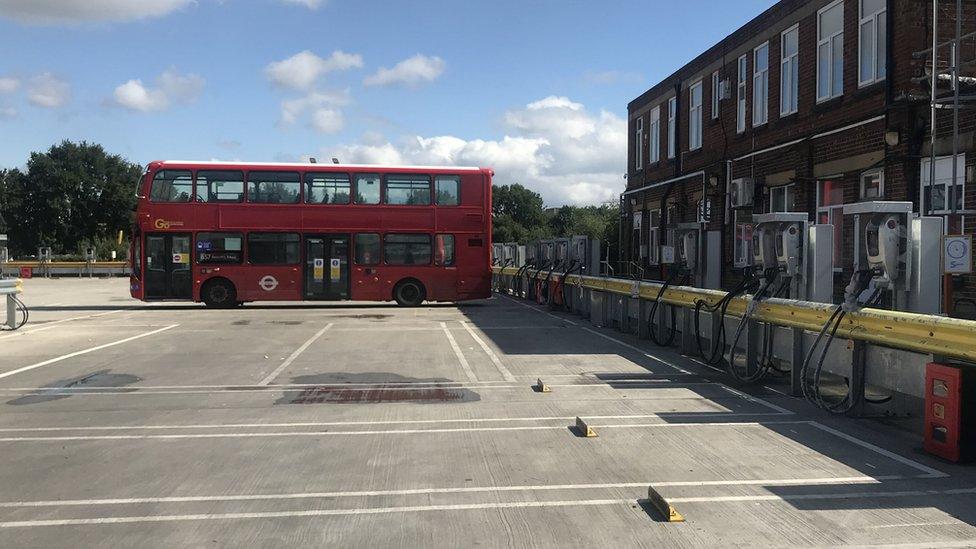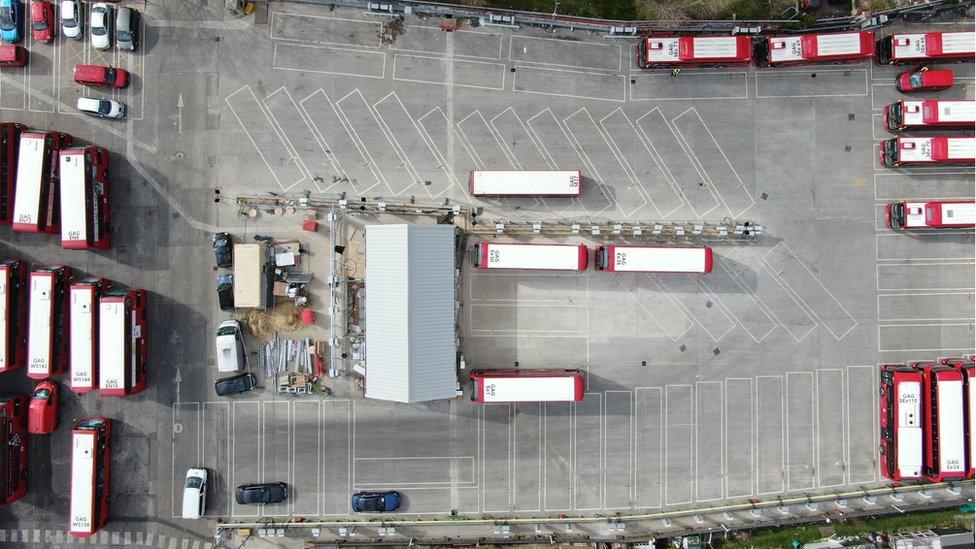London bus garage to become world's largest 'trial power station’
- Published

Northumberland Park garage will be converted to allow parked electric buses to return battery power back into the grid
A bus garage in north London is to be converted into the world's largest trial site for a new low-emissions type of power station.
Northumberland Park garage will host vehicle-to-grid technology, which feeds energy stored in parked electric buses back into the electricity network.
If the government-funded Bus2Grid project is rolled out across London it could power an estimated 150,000 homes.
The project will begin in November and run for three years.
Putting energy back into the grid when demand is high and recharging buses when demand is low helps make the network more efficient by balancing the peaks and troughs.
Ian Cameron, head of innovation at UK Power Networks, said: "A fleet of bus batteries harnesses large amounts of electricity and they are habitual, with regular and predictable routes, driving patterns and timings.
"That means we can easily predict and plan for how we can use any spare electrical capacity they can offer."

If all 9,000 of London's busses were converted it could meet the energy needs of more than 150,000 homes
Energy firm SSE Enterprise will lead the project, backed by Bus2Grid project in a partnership including the mayor of London, Transport for London, bus operator Go-Ahead London and the University of Leeds.
The project will begin with 28 double-decker buses, capable of delivering more than one megawatt of power to the grid.
The Bus2Grid project, claims Northumberland Park garage will be the "world's largest" vehicle-to-grid site.
If all 9,000 of London's busses were converted with the technology it could meet the energy needs of more than 150,000 homes, according to SSE Enterprise.
Niall Riddell, smart systems innovation sector director for SSE Enterprise, said: "Central to the challenge of decarbonising our transport and achieving climate change targets is how we can optimise the existing flexibility within the energy system.
"Developing a charging infrastructure that operates in two directions so that batteries can give back as well as take from the grid is an important part of this."
Dr Stephen Hall, from the University of Leeds, said: "Electrifying transport will have huge benefits for air quality in cities and for meeting our climate change commitments.
"Large electric vehicles like these can also support the energy system, but this means creating new ways of working between energy utilities, grid managers and transport providers."
- Published18 September 2019
